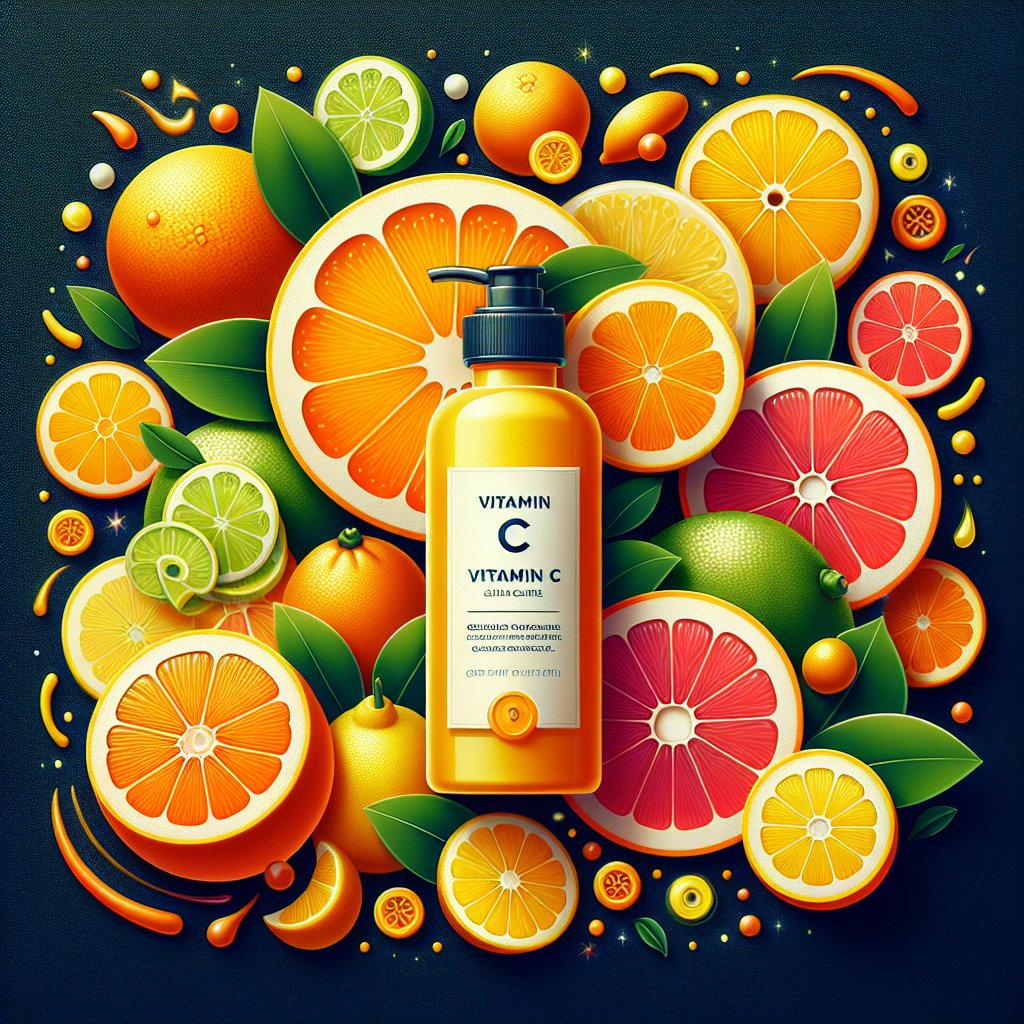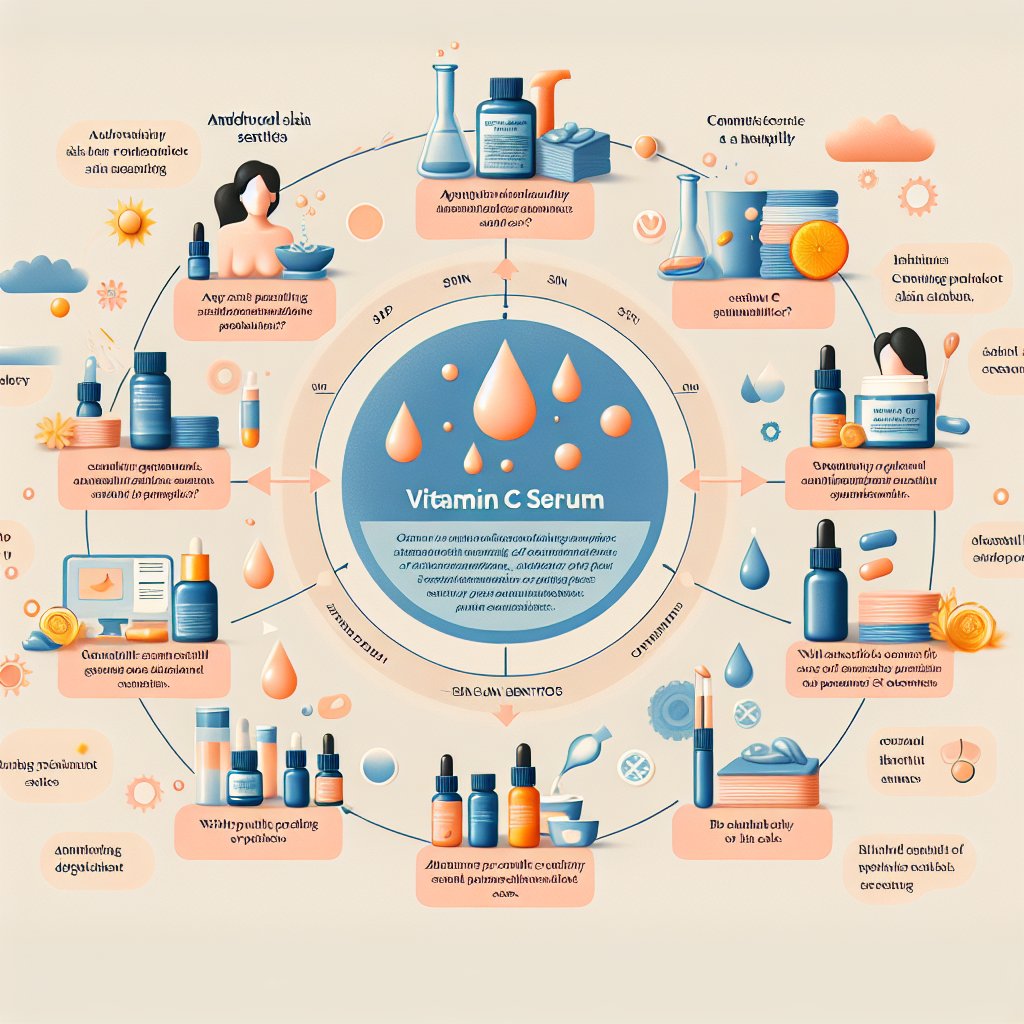Unlock Faster Wound Healing with Vitamin C: The Ultimate Guide to Harnessing its Power
Unlock Faster Wound Healing with Vitamin C: The Ultimate Guide to Harnessing its Power
Hey there, keto fam! Today, we’re diving into the incredible role of Vitamin C in accelerating wound healing. Whether it’s a tiny cut or a more significant injury, efficient wound healing is crucial for our overall well-being. Vitamin C plays a pivotal role in this process, as it’s essential for collagen synthesis, a protein that provides strength and structure to our skin. Let’s uncover the science behind this powerhouse nutrient and how it can supercharge your body’s natural healing abilities. So, let’s dig in!
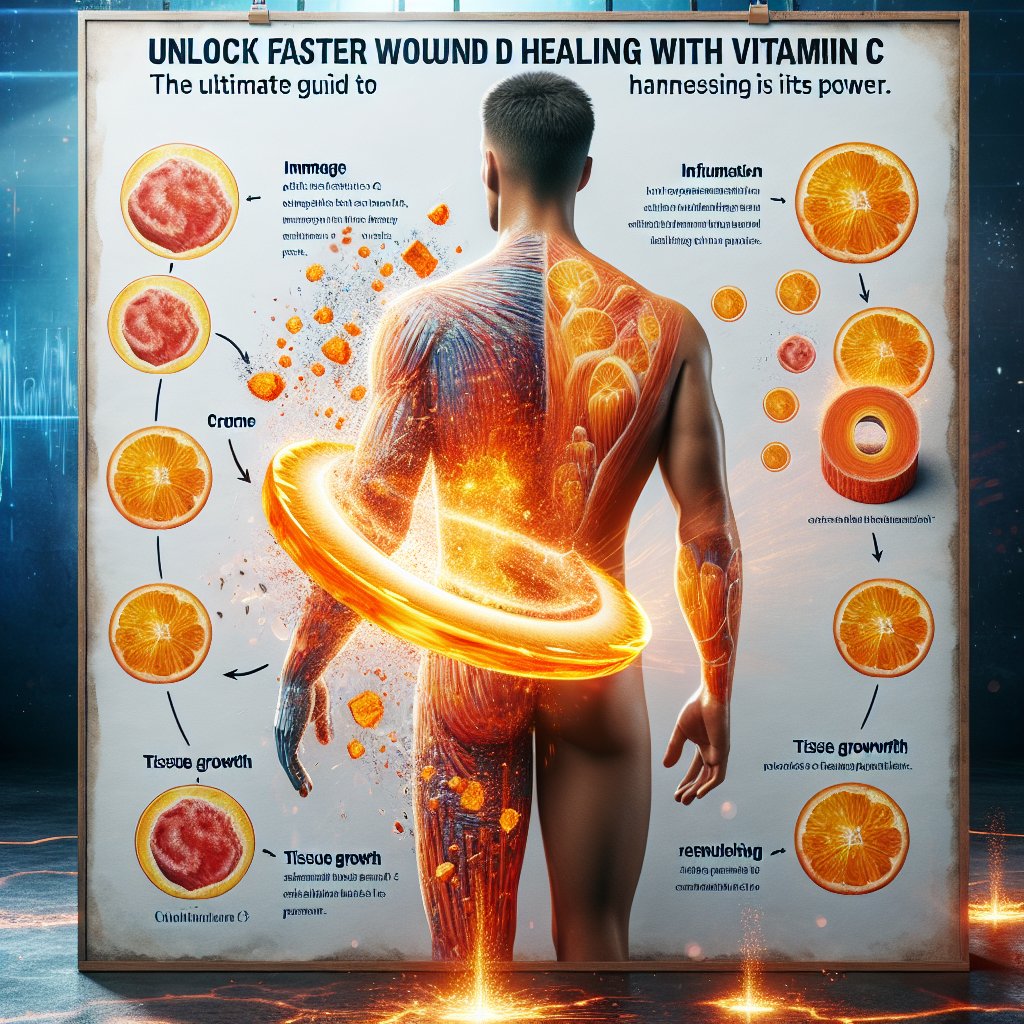
The Science Behind Wound Healing
Wound healing is a fascinating process that occurs in several stages, each crucial for restoring the skin’s integrity. The stages include hemostasis, inflammation, proliferation, and maturation. During the inflammatory phase, the body sends specialized cells to ward off infection and initiate tissue repair. Vitamin C, an essential nutrient with powerful antioxidant properties, plays a key role in each stage of wound healing. It promotes collagen synthesis, enhances immune function, and accelerates the formation of new blood vessels, all of which are vital for efficient wound repair.
Benefits of Vitamin C for Wound Healing
When it comes to wound healing, Vitamin C plays a crucial role in promoting faster and more effective recovery. Scientific research has shown that Vitamin C is essential for the synthesis of collagen, a key protein in the process of wound repair. It also acts as an antioxidant, protecting the cells from damage and supporting the immune system. Including Vitamin C-rich foods in your diet can significantly aid in the healing of wounds, making it an important nutrient to prioritize for overall health and wellbeing.
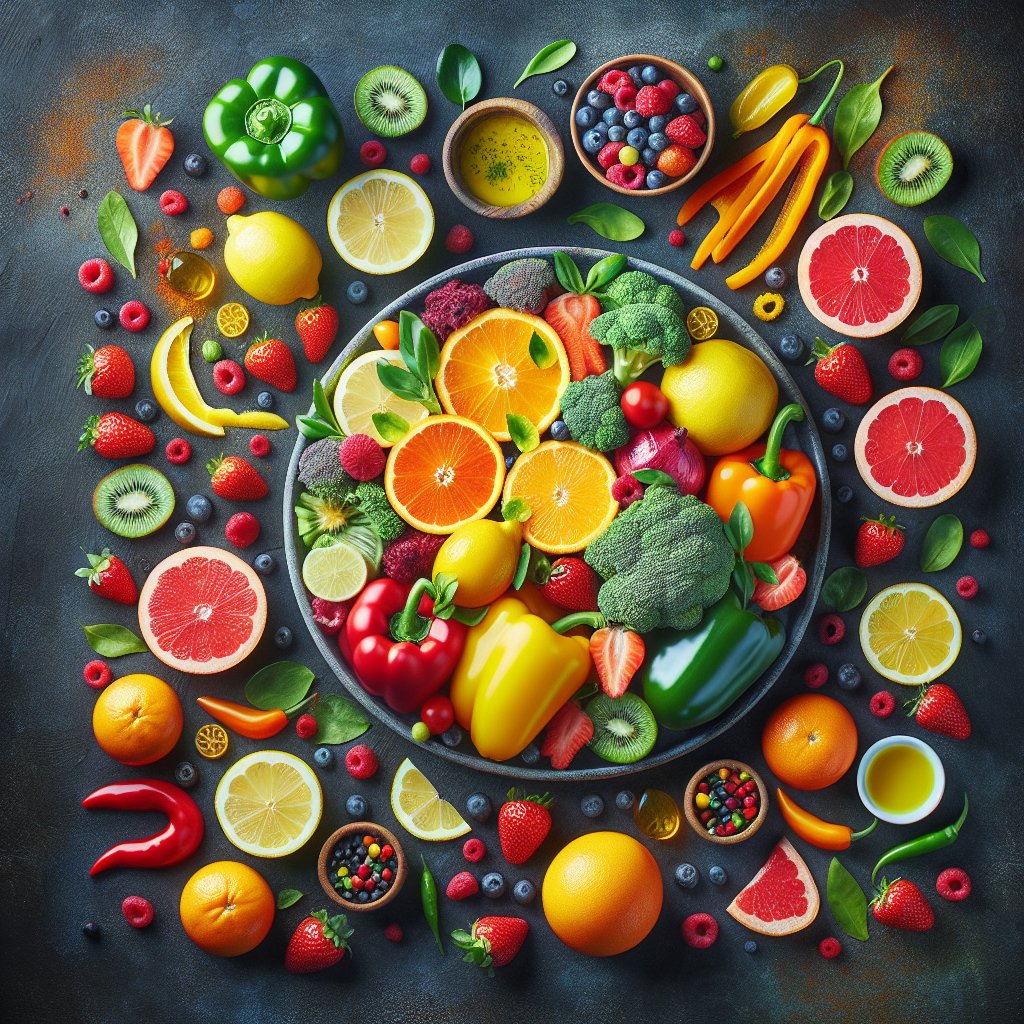
Food Sources of Vitamin C
When it comes to harnessing the power of vitamin C for faster wound healing, incorporating natural food sources rich in this nutrient can make a significant difference. Including vitamin C-rich foods in your ketogenic diet can aid in collagen synthesis, a crucial component for wound repair. Some top natural food sources of vitamin C include:
- Broccoli
- Bell peppers
- Strawberries
- Kale
- Cauliflower
These foods not only provide a generous dose of vitamin C but also offer a variety of essential nutrients, making them valuable additions to your diet, supporting both your overall health and accelerating the wound healing process. So, stock up on these delicious options for a nutritious, healing boost!
Supplements and Dosage
When it comes to wound healing, Vitamin C supplements can play a crucial role. Research suggests that adequate intake of Vitamin C can enhance the body’s natural healing process.
For adults, the recommended daily allowance of Vitamin C is 65 to 90 milligrams per day, and for those looking to maximize its wound-healing benefits, higher doses of around 250 to 500 milligrams daily may be beneficial. However, it’s essential to consult with a healthcare professional before significantly increasing your Vitamin C intake.
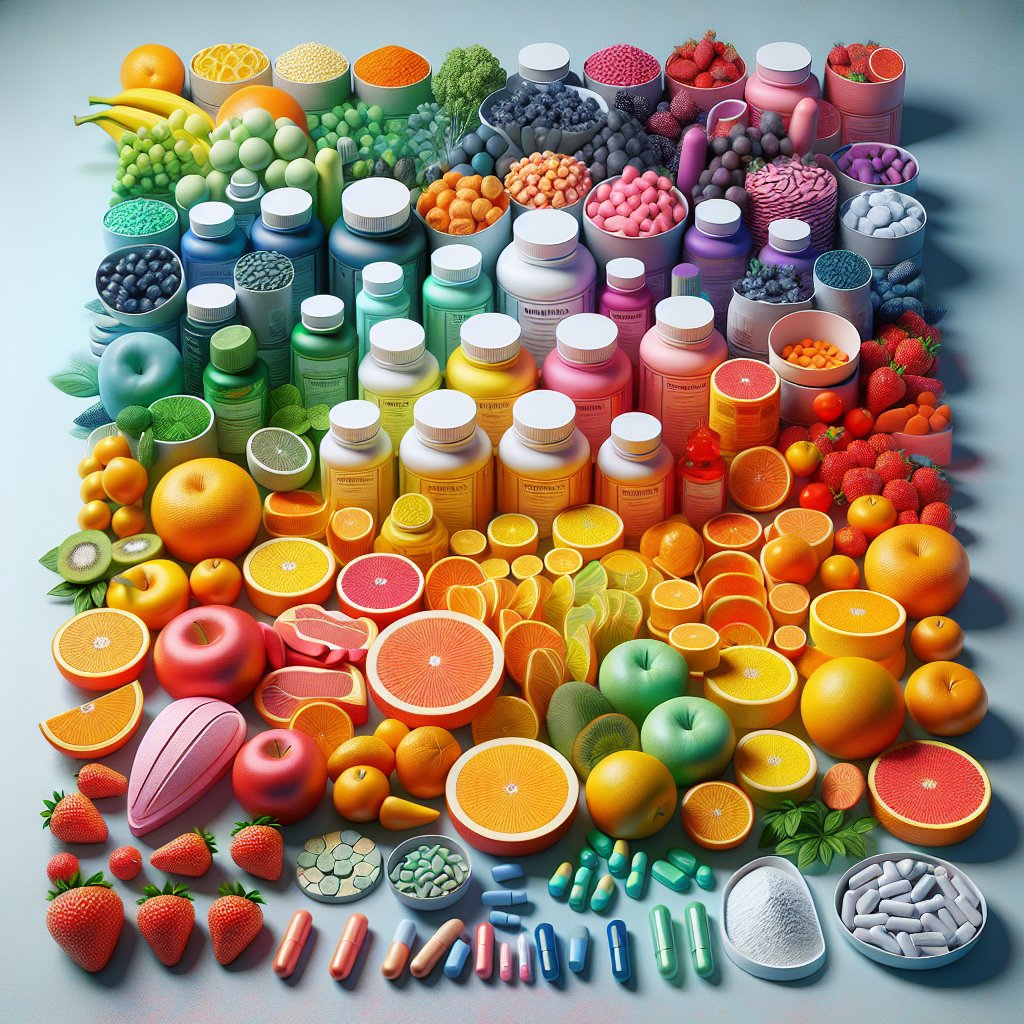
Vitamin C Deficiency and Impaired Wound Healing
Hey there, keto warriors! Did you know that ensuring you get enough vitamin C in your diet is crucial for promoting faster wound healing? Let’s dive into the science behind it.
Research has shown that vitamin C plays a key role in the wound healing process. It is essential for the production of collagen, a protein that helps to strengthen the skin and promote tissue repair. Additionally, vitamin C is a powerful antioxidant that helps to combat free radicals, which can otherwise hinder the healing process.
A deficiency in vitamin C can lead to impaired wound healing, as the body struggles to produce an adequate amount of collagen. So, if you’re on a keto journey and aiming for faster wound healing, make sure to include vitamin C-rich foods in your daily diet!
Now, let’s move on to understanding the best food sources of vitamin C to ensure we’re fueling our bodies for optimal healing.
Practical Tips for Using Vitamin C for Wound Healing
When it comes to harnessing the power of Vitamin C for wound healing, incorporating this essential nutrient into your daily regimen can make a remarkable difference. With its potent antioxidant properties, Vitamin C plays a crucial role in collagen synthesis, a key component of wound repair. To optimize wound healing, ensure you include Vitamin C-rich foods in your diet, such as oranges, strawberries, and bell peppers. Alternatively, you can consider Vitamin C supplements to maintain an adequate intake, promoting faster healing and better overall health.

Potential Risks and Interactions when Using Vitamin C for Wound Healing
When it comes to using Vitamin C for wound healing, it’s important to be aware of potential risks and interactions. While Vitamin C is generally considered safe, taking high doses orally can lead to digestive issues such as diarrhea and nausea. Also, excessive intake of Vitamin C can interact with certain medications like blood thinners, and it may increase the risk of kidney stones in individuals with a history of kidney stones. Therefore, it’s crucial to consult with a healthcare professional before using Vitamin C supplements, especially if you are currently on medication or have a pre-existing health condition.
Remember, incorporating Vitamin C-rich foods in your diet is always the best way to ensure a balanced intake of this essential nutrient for effective wound healing.
Let’s begin the article with an exciting and informative sub-topic.
Title: Unlock Faster Wound Healing with Vitamin C: The Ultimate Guide to Harnessing its Power
Summarizing the Key Points: Vitamin C’s Role in Wound Healing
Vitamin C plays a crucial role in wound healing. It is essential for the formation of collagen, a protein that helps repair and regenerate tissues. Additionally, vitamin C is a powerful antioxidant that helps combat the oxidative stress that can impede the healing process. Research has shown that a deficiency in vitamin C can lead to impaired wound healing and increased risk of complications.
The Importance of Ensuring an Adequate Intake
Ensuring an adequate intake of vitamin C is crucial for supporting optimal wound healing. As the body does not produce vitamin C on its own, it’s important to obtain an ample supply from dietary sources or supplements. By incorporating vitamin C-rich foods or supplements into your diet, you can provide your body with the necessary support to facilitate faster and more effective wound healing.
Conclusion:
In conclusion, ensuring an adequate intake of vitamin C is paramount for promoting efficient wound healing. With its role in collagen formation and its antioxidant properties, vitamin C plays a vital part in the body’s ability to repair and rejuvenate tissues. By prioritizing vitamin C-rich foods or supplements in your diet, you can harness the power of this essential nutrient to unlock faster and more effective wound healing.

